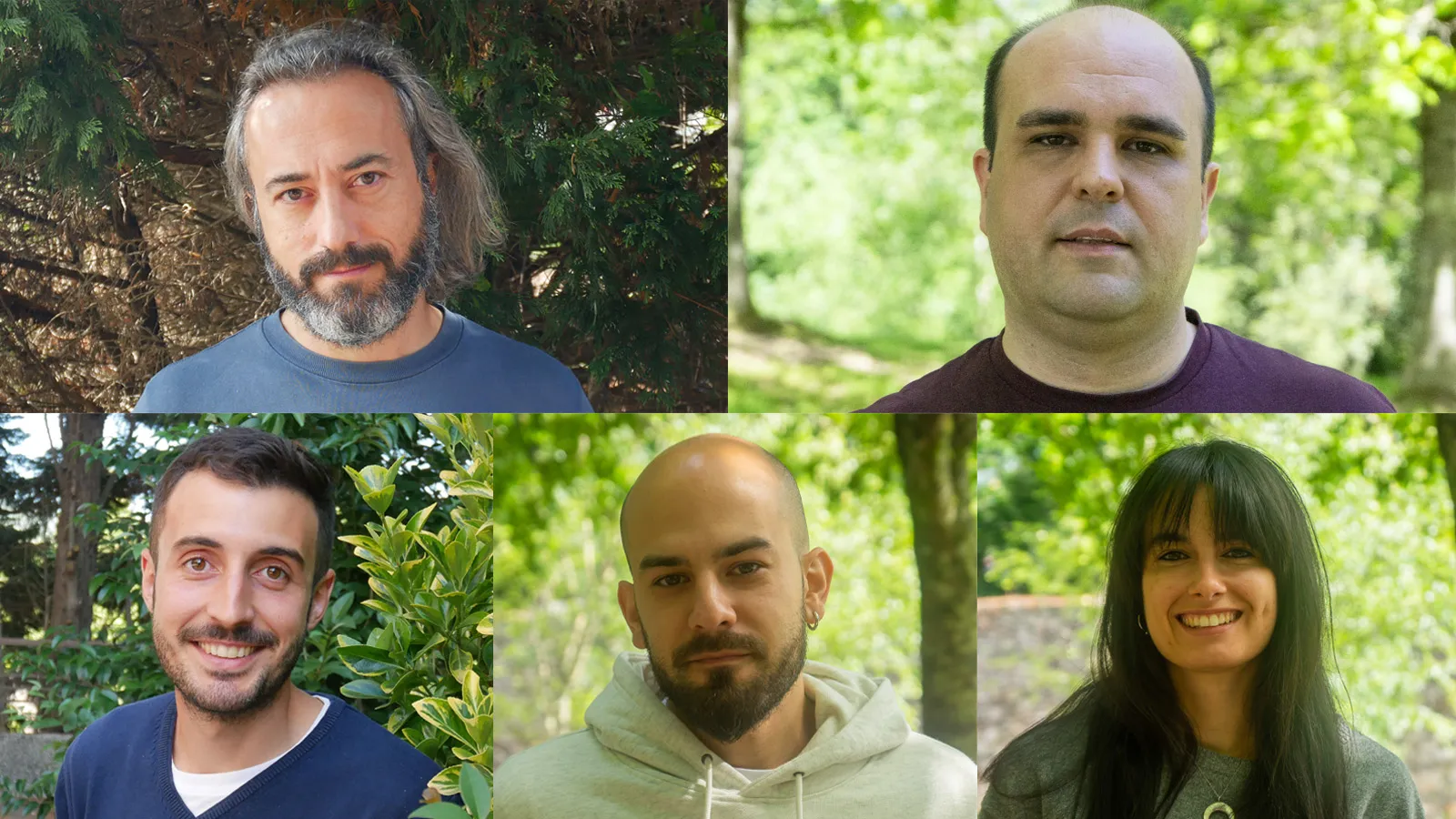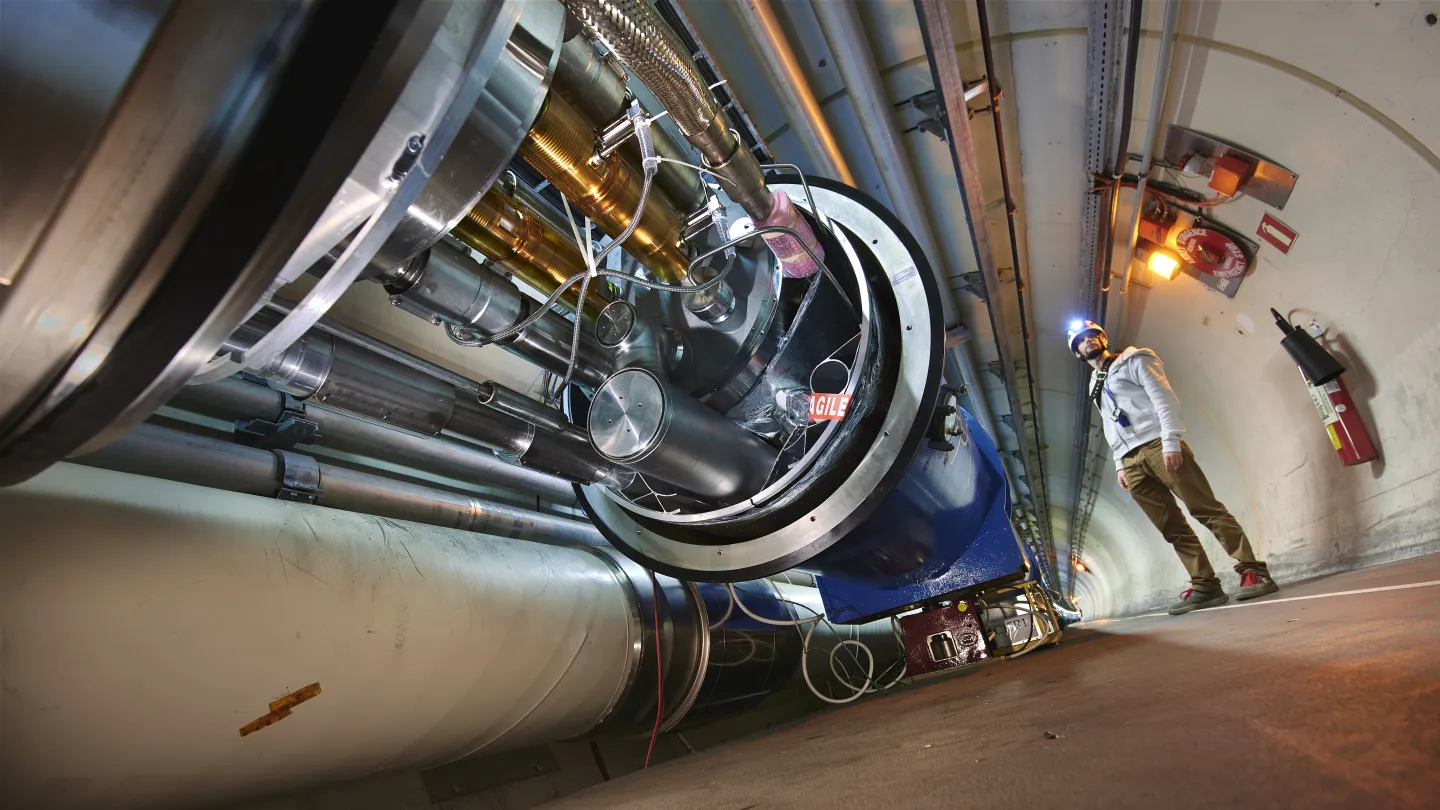‘Nature’ publica un traballo pioneiro sobre fisión nuclear no que participa o IGFAE



14.05.2019

A comunidade europea en física de partículas está a reunirse esta semana en Granada para discutir o futuro desta disciplina científica cuxo obxecto de estudo son os compoñentes da materia que forman todo o que vemos no Universo. Do 13 ao 16 de maio celébrase no Palacio de Congresos da capital granadina o “CERN Council Open Symposium on the Update of European Strategy for Particle Physics” onde máis de 600 especialistas de todo o mundo debaterán a próxima Estratexia Europea de Física de Partículas, a ‘folla de roteiro’ que marcará as prioridades científicas e tecnolóxicas deste campo de investigación nos próximos anos. O congreso de Granada abrirá a discusión sobre varias opcións que están sobre a mesa para tomar a testemuña do Gran Colisionador de Hadrones (LHC) do CERN, o maior acelerador de partículas do mundo onde se descubriu o bosón de Higgs.
A Estratexia Europea de Física de Partículas é a pedra angular do proceso de toma de decisións para o futuro a longo prazo do campo. De acordo co mandato establecido polo Consello do CERN, o máximo órgano de goberno do laboratorio europeo de física de partículas, o proceso consiste nunha ampla consulta á comunidade científica europea involucrada nesta área da Física, ademais de solicitar a opinión de físicos de todo o mundo. O seu desenvolvemento está en estreita coordinación con procesos similares que levan a cabo en Estados Unidos e Xapón para asegurar a coordinación entre rexións e un óptimo uso dos recursos de investigación a nivel global.
Para coordinar este proceso creouse o Grupo da Estratexia Europea, que recibiu 160 contribucións da comunidade científica sobre proxectos e experimentos. En Granada avaliaranse e debaterán estas propostas.
O anterior proceso de renovación da Estratexia Europea de Física de Partículas, aprobado en maio de 2013, recomendou a realización no continente de estudos de deseño e viabilidade “para estar en posición de propoñer un ambicioso proxecto de acelerador post- LHC”. Esta é a razón pola que se realizaron en Europa, en colaboración con socios de todo o mundo, proxectos de I+D para varias instalacións posteriores ao LHC no marco dos proxectos CLIC (acelerador lineal) e FCC (acelerador circular). Ademais, en 2016 iniciouse no CERN un estudo para analizar as posibilidades de realizar proxectos complementarios cos aceleradores de partículas altas enerxías, aproveitando as posiblidades únicas que ofrece o complexo de aceleradores do CERN.
Estas contribucións alimentarán o debate en Granada, que terá en conta tamén o panorama mundial da física de partículas, onde existen outros proxectos para crear novos aceleradores de partículas como o Colisionador Lineal Internacional (ILC) en Xapón ou o Colisionador Circular Electrón Positrón (CEPC) que planea construír China, así como os últimos avances en campos relacionados como a física de neutrinos ou a física de astropartículas, onde a detección de ondas gravitacionales revolucionou o modo de estudar o Universo.
O simposio de Granada está organizado polo Centro Andaluz de Física de Partículas Elementales (CAFPE) e o Departamento de Física Teórica y del Cosmos da Universidad de Granada, coa colaboración do Programa Nacional de Física de Partículas, (Ministerio de Ciencia, Innovación y Universidades), o sincrotrón ALBA , e varios Centros e Unidades de Excelencia Severo Ochoa y María de Maeztu: Centro de Investigaciones Energéticas, Medioambientales y Tecnológicas (CIEMAT); Instituto de Ciencias del Cosmos (ICCUB); Instituto de Física Corpuscular (IFIC); Instituto de Física de Altas Energías (IFAE); Instituto de Física de Cantabria Instituto de Física de Altas Energías (IFCA); Instituto Galego de Física de Altas Enerxías (IGFAE); e o Instituto de Física Teórica (IFT), ademáis da Universidad de Zaragoza.
Antonio Bueno, investigador da Universidad de Granada e presidente do comité organizador local, destaca que “realizar este simposio en Granada outorga á comunidade de física de partículas española unha oportunidade única para poñer en valor as relevantes contribucións que fixo, e seguirá facendo a través das propostas enviadas, nun campo punteiro da ciencia básica”. As propostas da comunidade científica española á Estratexia Europea de Física de Partículas coordináronse a través da Rede Consolider CPAN, onde participan os centros mencionados.
O simposio de Granada permitirá redactar un resumo das principais propostas, que marcará o camiño para a celebración dunha sesión para elaborar o borrador da Estratexia Europea que terá lugar en Bad Honnef, Alemaña, do 20 ao 24 de xaneiro de 2020. Espérase que o documento final coa nova Estratexia Europea de Física de Partículas estea listo para a súa aprobación polo Consello do CERN en maio de 2020.
O xoves 16 de maio ás 16 horas prevese unha sesión de preguntas para os medios de comunicación que se pode seguir por videoconferencia. Os medios interesados en seguila han de rexistrarse enviando unha mensaxe a leste correo electrónico.
Imaxe: túnel do Gran Colisionador de Hadrones (LHC) durante o seu segundo período de parada (Long Shutdown, LS2)
Ligazóns: